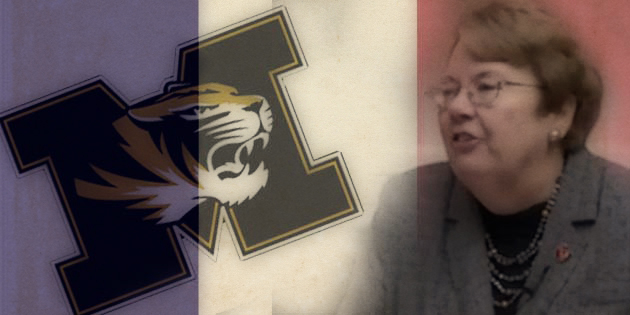by David Ramadan
 Last October, I wrote that I was sick and tired of people in charge not taking responsibility for the actions — or lack thereof — of their administrations.
Last October, I wrote that I was sick and tired of people in charge not taking responsibility for the actions — or lack thereof — of their administrations.
Shortly thereafter, I was roundly criticized by two of my colleagues — Delegates David Toscano and Jimmie Massie — for having the temerity to suggest that Terry Sullivan, who is still president of the University of Virginia, should go.
Praising her to the metaphorical skies, they suggested that Sullivan was the right person in the right place, had successfully put an Office of Civil Rights (OCR) investigation behind her, and was a leader in whom everyone — including me — should have confidence.
Well, OK. But now we really know what happened. It is not pretty, and it certainly is not what any reasonable person would call a benchmark of leadership.
Last August, Terry Sullivan got a draft letter of a very critical OCR investigation into systemic rapes and abuse at the University of Virginia.
Until last week, that first letter stayed hidden from public view. But now we have two letters. One is long, detailed and damning, while the other — the one Terry Sullivan wanted and got — is limited in scope, has far fewer specifics and is much less sharp in its tone. And now we know why that is.
Mind you, I am no fan of the U.S. Department of Education, much less its Office of Civil Rights.
Even so, the first letter’s 39 pages recite chapter and verse of how we came to a place where parents worry when their children leave for Charlottesville. Even in its redacted form the facts confirm a significant disconnect between leadership and reality.
It’s not as if we haven’t seen that before. In 2014, Sullivan decided her time would be better spent on a plane to Europe instead of staying in Charlottesville to address a damning Rolling Stone article.
Ultimately, that article was discredited. But keep this in mind: Terry Sullivan didn’t know that when she handed in her boarding pass. Her community desperately needed a steady hand and calm voice, but she left town.
This time, Sullivan stayed put, but she enlisted the help of lobbyists and politicians in Richmond and Washington to change the outcome of a long-awaited report about just how bad bad could be. And it worked.
If you compare the draft with the final version, it’s as if nothing really, really bad ever happened, which may be the precisely polished and undoubtedly expensive fiction the school would like us to believe.
In all of this, the sad fact is that lives have been forever changed and grievances have gone unanswered, but there are other tragic losers.
Among them are concepts like transparency and candor, not to mention the kind of integrity and desire for truth in all things that Virginians have a right to expect, especially in this university president’s office.
Call this another lesson learned — and not one Mr. Jefferson would have wanted to unfold as it has.
Indeed, oversight and transparency might have prevented a cover-up that’s now come to light, which is the reason I co-sponsored legislation to remove an exemption from Virginia’s open records law that protects university presidents’ working papers.
Had that legislation not been hijacked by university lobbyists, we would be able to know in clear and precise terms what the president knew, when she knew it and exactly what she did or didn’t do about it.
Had that legislation passed, we’d know if the alleged rapes — all of them — were reported in compliance with the Clery Act, which requires the timely notification to the community to protect the safety and welfare of students and the community as a whole.
Had that legislation passed, we would have been spared yet another embarrassing chapter. Now my hope is that it will find new patrons who believe enough is enough, be open to change, and do something about it.
As Toscano and Massie observed, the university has a new strategic plan that may further enhance its reputation as one of the best universities in the country. That may very well be true, but only if the people who pay the bills — Virginia’s taxpayers and parents who send their children off to Charlottesville with high hopes — can trust those who lead it.
If officials won’t take the steps necessary to remove untrustworthy leaders, at least give Virginians the tools required to hold them accountable for the fundamental safety of our children.
David I. Ramadan, R-Loudoun, represented the 87th District in Virginia’s House of Delegates from 2012-2016. Contact him at Delegate@DavidRamadan.com.









Her community desperately needed a steady hand and calm voice, but she left town.
Left unsaid here is just what she neglected to do and what it would have accomplished. You guys were against her already. Nothing she said could have calmed you down.